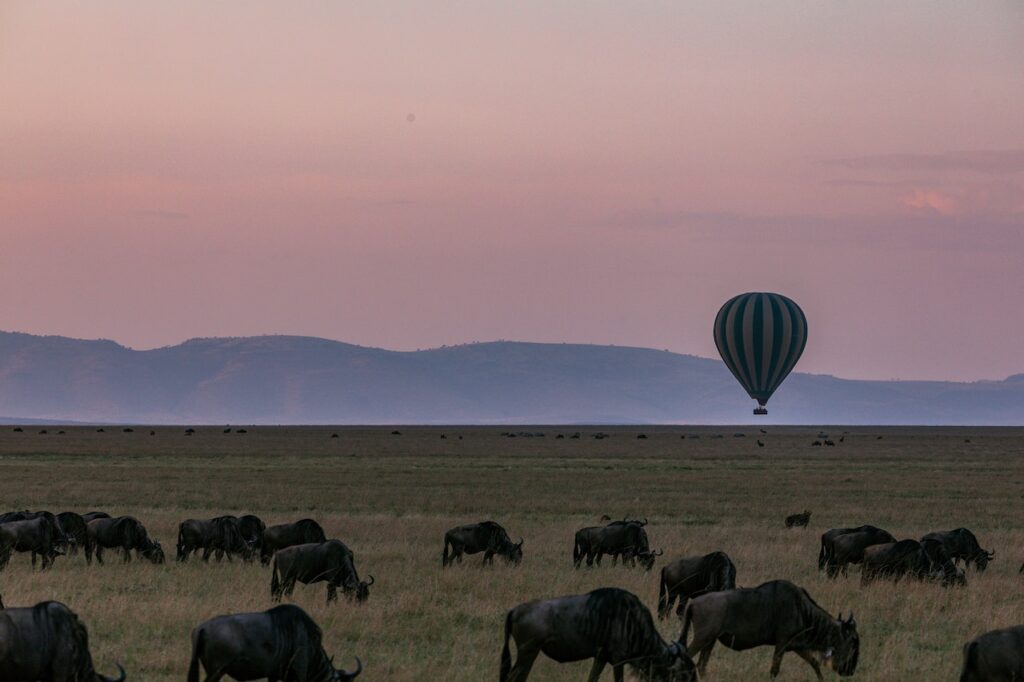Unlocking Africa’s Investment Potential: Key Sectors and Opportunities
Table of Contents
I. Introduction
II. Agriculture: Nourishing the Future
A. Agribusiness Investment Opportunities
B. Case Study: Agricultural Transformation in Ethiopia
C. Investing in Sustainable Agriculture
III. Renewable Energy: Powering Africa’s Progress
A. The Booming Renewable Energy Market
B. Case Study: Solar Energy Advancements in Kenya
C. Wind, Hydro, and Biomass: Untapped Resources
IV. Technology and Innovation: Africa’s Tech Revolution
A. The Tech Ecosystem in Africa
B. Case Study: Fintech Disruption in Nigeria
C. Startups and Innovation Hubs
V. Infrastructure Development: Building the Foundation
A. The Infrastructure Gap
B. Case Study: Ethiopia’s Grand Renaissance Dam
C. Opportunities in Transportation and Logistics
VI. Healthcare and Pharmaceuticals: Investing in Well-Being
A. The Growing Healthcare Sector
B. Case Study: Access to Medicines in South Africa
C. Research and Development Opportunities
VII. Mining and Natural Resources: Beneath the Surface
A. Africa’s Abundant Mineral Wealth
B. Case Study: Sustainable Mining in Ghana
C. Environmental Considerations
VIII. Tourism and Hospitality: Showcasing Africa’s Beauty
A. The Flourishing Tourism Industry
B. Case Study: Eco-Tourism in Rwanda
C. Investing in Sustainable Tourism
IX. Education and Skills Development: Nurturing Talent
A. The Importance of Education
B. Case Study: Advancements in Education Technology in Kenya
C. Scholarships and Capacity Building
X. Challenges and Risks: Navigating the Landscape
A. Political and Economic Risks
B. Mitigating Risks through Due Diligence
XI. Investment Strategies: Making Informed Decisions
A. Identifying the Right Opportunities
B. Partnering with Local Stakeholders
C. Regulatory and Legal Considerations
XII. Conclusion: Africa’s Bright Investment Future
I. INTRODUCTION
Africa is the second largest continent and has the second largest population and potential for investors. With its vast and diverse landscapes, it is a continent brimming with untapped investment potential. The African economy has been on the rise, presenting numerous opportunities across various sectors. We at CADI encourage investing in Africa by promoting inclusive economic contribution for the growth of the continent.
This comprehensive guide will explore the key sectors within Africa’s economy that offer promising investment opportunities, such as agriculture, renewable energy, technology, and infrastructure development. We will also highlight specific projects and success stories that not only demonstrate the continent’s potential but also inspire potential investors to be a part of Africa’s transformative journey.
II. Agriculture: Nourishing the Future
A. Agribusiness Investment Opportunities:
Investment potential in Africa’s agriculture sector is filled with opportunities. With a growing population and increasing urbanization, the demand for food and agricultural products is on the rise. Investors can explore opportunities in agribusiness, including crop cultivation, livestock farming, and agro-processing.
B. Case Study: Agricultural Transformation in Ethiopia:
Ethiopia’s agricultural sector has undergone a remarkable transformation in recent years. The country’s ambitious agricultural policies and investment in infrastructure have led to increased productivity and exports. This fundamentally shaped Ethiopia’s approach to addressing its age-old problems of structural bottlenecks for development.
As such, the government envisioned overall development around an agriculture-first and then industrializes approach with a series of strategies put in place to execute this grand vision.
As a result, Ethiopia and its development partners have invested heavily in putting in place not only development programs and projects but also the critical institutional and governance structures to implement them. This required instituting government structures, at times at the cost of being too bureaucratic, and building new government and semi-government organizations tasked to achieve agricultural transformation.
C. Investing in Sustainable Agriculture:
Investment potential in Africa in sustainable agriculture practices are gaining traction in Africa. Investors can play a crucial role in promoting sustainable farming methods, reducing environmental impact, and ensuring food security.
III. Renewable Energy: Powering Africa’s Progress
A. The Booming Renewable Energy Market:
Africa boasts abundant renewable energy resources, including solar, wind, hydro, and biomass. The renewable energy sector presents significant investment opportunities, as countries seek to expand access to clean and affordable energy.
B. Case Study: Solar Energy Advancements in Kenya:
Kenya has made significant strides in harnessing solar energy. A recent study conducted by the Kleinman Center for Energy Policy at the University of Pennsylvania reveals that Kenya has emerged as a global leader in solar energy generation — creating favorable conditions for harnessing solar power.
According to the report, for Kenya’s ambitious goals to be achieved, the country must take more proactive measures and enhance its geothermal energy resources alongside wind and solar power. There are already a number of solar power stations in operation in the country, contributing to the country’s national grid with a steady supply of electricity.
C. Wind, Hydro, and Biomass – Untapped Resources:
In addition to solar energy, Africa offers vast potential in wind, hydroelectric, and biomass energy generation. Investors can explore these renewable sources to meet the continent’s energy needs sustainably.
IV. Technology and Innovation: Africa’s Tech Revolution
A. The Tech Ecosystem in Africa:
Africa’s tech ecosystem is thriving, with startups, innovation hubs, and a growing number of tech-savvy entrepreneurs. Investment in technology and innovation can drive economic growth and foster innovation.
B. Case Study: Fintech Disruption in Nigeria:
Nigeria’s fintech industry has disrupted traditional banking and financial services. Between 2011 & 2018, fintech investments in Nigeria recorded more than US$200 million.
In Nigeria, investors are taking positions or stakes in the country’s growing tech ecosystem fueled by attractive fundamentals like the country’s youthful and tech-savvy population, increasing smartphones and internet penetration, and large unbanked population, among other factors.
C. Startups and Innovation Hubs:
Investors can explore opportunities to support tech startups and innovation hubs across the continent. These hubs nurture young talent and drive technological advancements. This is the way of the future around the world and most of all in investment potential in Africa where the population having internet access is growing rapidly.
V. Infrastructure Development: Building the Foundation
A. The Infrastructure Gap:
Africa faces significant infrastructure challenges, including transportation, energy, and telecommunications. Infrastructure development presents vast opportunities for investors to contribute to the continent’s growth.
B. Case Study: Ethiopia’s Grand Renaissance Dam:
Ethiopia’s Grand Renaissance Dam is a symbol of ambitious infrastructure development. Construction of the Grand Renaissance Dam started in April 2011 after the ETB80bn ($4.7bn) engineering, procurement and construction (EPC) contract was awarded to Salini Costruttori.
The Grand Ethiopian Renaissance Dam project was completed by July 2017. The people and Government of Ethiopia funded the project, which will not only serve Ethiopia, but Sudan and Egypt as well.
C. Opportunities in Transportation and Logistics:
Investment potential in Africa in this sector is growing, due to the diverse population and growing economy. Investing in transportation and logistics infrastructure can improve connectivity and facilitate trade within Africa and with the rest of the world.
Investors can boost global trade, economic growth, and job opportunities by creating strong infrastructure and utilizing modern technology. This sector also supports industries like agriculture and manufacturing while addressing urbanization challenges. Additionally, this aligns with global environmental goals by promoting sustainability.
VI. Healthcare and Pharmaceuticals: Investing in Well-Being
A. The Growing Healthcare Sector:
Africa’s healthcare sector is expanding to meet the needs of a growing population. Investment in healthcare facilities, pharmaceuticals, and medical technology can improve healthcare access and outcomes.
B. Case Study: Access to Medicines in South Africa:
South Africa’s efforts to improve access to essential medicines serve as a case study for addressing healthcare challenges in Sub-Saharan countries. The right to health as a basic human right- and access to medicine as a part of it- have been a matter of attention for several decades. Also the responsibilities of different parties- particularly pharmaceutical companies- in realization of this right have been emphasized by World Health Organization.
Médecins Sans Frontières (MSF) applauds the landmark move by the South African government, after years of advocacy efforts by civil society through the Fix the Patent Laws (FTPL) Campaign, to release a new intellectual property (IP) policy that will stop the country’s process of blindly handing out patents, providing hope to people across South Africa who cannot afford the medicines they need to stay alive and healthy. The policy is a first big step to amend the country’s patent law in favour of public health.
C. Research and Development Opportunities:
Investors can explore opportunities in healthcare research and development, including partnerships with local institutions to address pressing health issues.
VII. Mining and Natural Resources: Beneath the Surface
A. Africa’s Abundant Mineral Wealth:
Africa is rich in mineral resources, including gold, diamonds, and precious metals. The mining sector presents investment opportunities, but it also requires responsible and sustainable practices.
B. Case Study: Sustainable Mining in Ghana:
Ghana’s approach to sustainable mining practices has garnered international attention. As to whether mining can be made sustainable or not, the sector remains very important to many African countries.
Ghana has recently overtaken South Africa to become Africa’s largest producer of gold. Ghana is blessed with a variety of commercially valuable minerals such as gold, diamond, manganese, and bauxite. According to Appiah and Buaben (2012) the mineral and natural resources sectors of Ghana have witnessed significant foreign direct investment since 2000 and as a result contributed to the country’s economy through job creation and the growth of the country’s Gross Domestic Product (GDP).
The Government of Ghana (2019) estimates that mining and quarrying contributed 12.6% to GDP in 2019, 18.38% of direct domestic revenue, and 19.05% in corporate tax over the same period. Investors in the mining sector should prioritize environmental sustainability and responsible resource management to ensure long-term benefits.
VIII. Tourism and Hospitality: Showcasing Africa’s Beauty

A. The Flourishing Tourism Industry:
Africa’s stunning landscapes, wildlife, and cultural heritage make it a prime destination for tourists. Investment in tourism and hospitality can drive economic growth and job creation.
B. Case Study: Eco-Tourism in Rwanda:
Rwanda’s eco-tourism initiatives have gained global recognition. This commitment was formalised through Rwanda’s Green Growth and Climate Resilience Strategy, which includes ‘Ecotourism, Conservation and Payment of Ecosystem Services’ as one of 14 programmes of action.
Rwanda has positioned itself as a high-yield, low volume destination in keeping with its conservation-centric approach to tourism. This strategy has attracted several high-end lodges and professional management such as international brands including Singita, One&Only, Wilderness Safaris and Mantis Collection and local brands such as The Retreat, Amakoro Songa Africa, Sabyinyo Silverback Lodge and The Bishop’s House.
C. Investing in Sustainable Tourism:
Investors can support sustainable tourism practices, including eco-friendly accommodations and wildlife conservation efforts.
IX. Education and Skills Development: Nurturing Talent

A. The Importance of Education:
Education is the foundation of any nation. By investing in education and skills development, investors can play a huge part in developing young minds and making them prepared to become knowledgeable and skilled individuals. Education initiatives can bridge skills gaps and empower the youth, which will allow them to contribute to their own communities, empowering future generations and initiating further developments.
B. Case Study: Advancements in Education Technology in Kenya:
Kenya’s advancements in education technology provide insights into innovative solutions for enhancing access to quality education. Amaf Primary and Elim Academy in Kawangware, a low-income settlement in Nairobi, have already reaped the benefits of such technology. Since advertising their new computers, these schools both have waiting lists and excited students.
The M-Pesa Foundation Academy in Thika is also establishing itself as a benchmark for Kenyan education reform. Every student has their own iPad, allowing for free use of the Internet to nurture discovery and an interest in learning. These efforts can be attributed to the eLimu project, which selected these schools to integrate interactive tablets into the classroom to allow them to use modern and advanced teaching methods
C. Scholarships and Capacity Building:
Investors can contribute to education by offering scholarships, establishing educational institutions, and supporting vocational training programs.
X. Challenges and Risks: Navigating the Landscape
As investors consider opportunities in Africa, it’s important to be aware of the challenges and risks associated with the region. Following are some of the challenges that investors might face when investing in countries of the African continent:
- Political and Economic Instability: It’s important to consider the local political climate and economic stability before investing in Africa. Sudden policy changes or economic downturns can have a big impact on investments.
- Regulatory Complexities: The regulatory frameworks across African countries can be complicated and constantly changing. It’s important to have expert guidance to stay compliant and avoid legal issues.
- Infrastructure Deficits: Inadequate transportation, energy, and communication networks can hinder business operations. Addressing infrastructure challenges is crucial for sustainable business growth.
- Market Volatility: African markets can be subject to fluctuations due to factors like commodity price shifts, currency fluctuations, and geopolitical events. Diversification and strong risk management strategies are essential
- Security Concerns: Security concerns are also important to consider. Some regions may face security challenges, from political instability to crime. Conducting thorough risk assessments and implementing effective security measures can help safeguard assets and personnel.
By conducting thorough research, getting expert advice, and following a proactive risk management strategy, investors can navigate the dynamic economy and society in the different countries of the continent and successfully contribute to its sustainable development.
XI. Investment Strategies: Making Informed Decisions
A. Identifying the Right Opportunities:
Investors should identify opportunities aligned with their objectives, risk tolerance, and ethical considerations.
B. Partnering with Local Stakeholders:
Collaboration with local governments, businesses, and communities is crucial for successful and sustainable investments.
C. Regulatory and Legal Considerations:
Understanding the regulatory and legal framework in each African country is essential to ensure compliance and protect investments.
XII. Africa’s Bright Investment Future
Africa’s investment landscape is evolving rapidly, offering promising opportunities across various sectors. With the right strategies, investors can contribute to the continent’s development while achieving financial success.
Africa’s potential is vast, and those who recognize and harness it can be part of a transformative journey that benefits both the continent and global investors. Africa is open for business, and the time to unlock its investment potential is now. Get in touch with us to know more about how you can make a positive contribution and be a part of its future.





